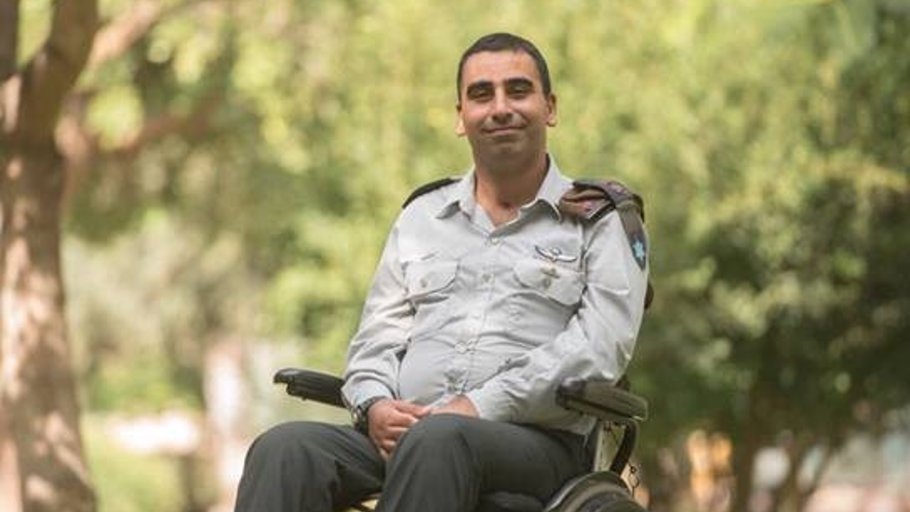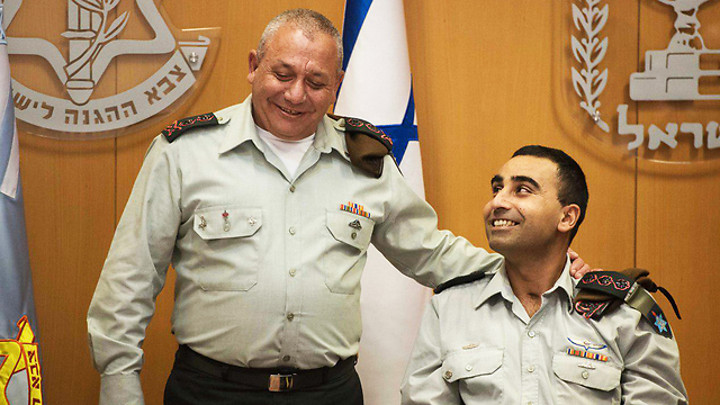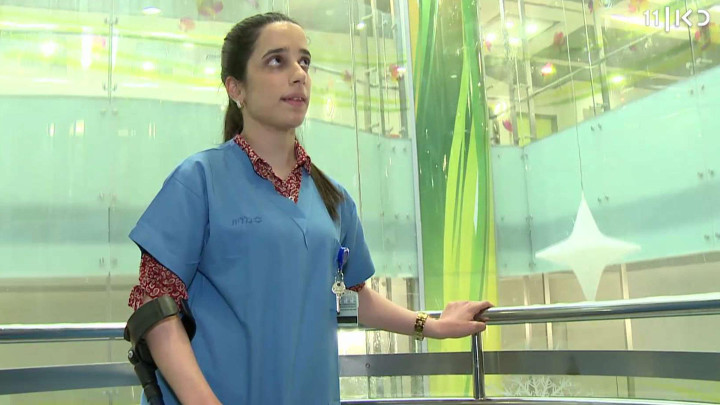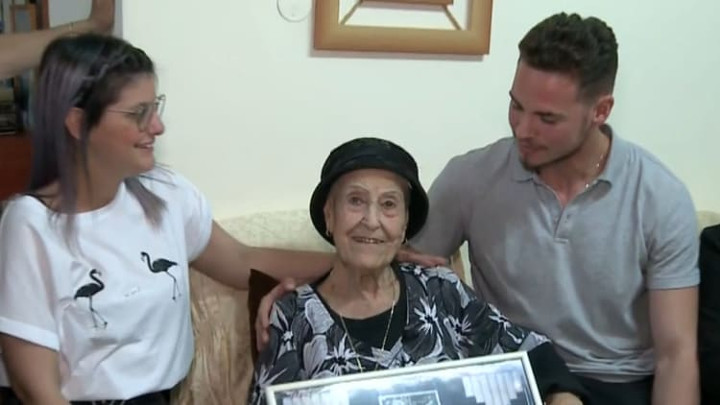May 8, 2019
Original Aish article posted at:
http://bit.ly/yom-haatzmaut-inspiring-torch-lighters

An inspirational soldier, a doctor with cerebral palsy and a foster mother to 52 kids define Israel’s spirit to overcome.
Every year, Israel honors a group of inspirational citizens with lighting a series of torches commencing annual celebrations for Yom HaAtzmaut. As Israel celebrates 71 years, the choice of the honorees pays tribute to Israel’s spirit to overcome.
Fighting back to rejoin the IDF
Col Shai. Siman-Tov was a career combat soldier, an officer in an elite strike unit in the Golani Brigade. He had fought as a division commander deep inside Southern Lebanon in the Second Lebanon War in 2006 and as a Deputy Battalion Commander during Operation Cast Lead in 2012 when IDF forces entered the Gaza Strip to stop incessant rocket attacks by Hamas. Five years ago, during Operation Protective Edge, he was once again called upon, when Israel entered the Gaza Strip amid thousands of rockets and mortars to destroy dozens of attack tunnels dug by Arabs to infiltrate Israeli communities.
On July 24, in the Saja’iyya neighborhood, deep inside the Gaza Strip, his life changed forever when he was assigned the mission to locate an attack tunnel reaching the Israeli community of Nahal Oz.
"We managed to locate the tunnel," Siman-Tov said. "I decided to go with my smaller command team to examine the entrance shaft."
As they entered, the roof collapsed above them, with a thick concrete beam falling on his head, leaving him with five broken vertebrae. Amid the tense battles around them, he was airlifted to hospital for emergency surgery and a long stay in intensive care. Within days he began his fight to get back to the army.

Siman-Tov being awarded rank of colonel by former IDF Chief of Staff
Following intensive rehabilitation, less than a year later, wheelchair-bound, he rejoined the army in a non-combat role, given the position of team commander at the IDF's tactical command college. In acknowledgement of his achievement and commitment he was promoted to the rank of colonel.
"I don’t like the definition of a hero," says Siman -Tov. "Part of being a fighter is in recovery too. I have never really seen a choice of giving up." He added, "Victory for me is to return to the army, to continue serving and to wear my uniform again."
Israel’s first doctor with Cerebral Palsy
Earlier this year, Hodaya Oliel, 27, made history, becoming Israel’s first doctor with cerebral palsy.
Born three months premature, weighing less than a kilogram, she was diagnosed with the disorder and spent many years of her childhood in and out of hospital. It was here that she first began to dream of becoming a doctor.
The hospital department where Hodaya was often treated as a child was opposite a children’s neurology ward. She spent many months seeing doctors changing children’s lives for the better.
"The entire time," Hodaya said, "between my own operations, I thought to myself, I want to be a doctor. I want to be a pediatric neurologist."

Dr. Hodaya Oliel
Her parents resisted calls to place her in a special school system for disabled children and opted to leave her within a mainstream school. "We didn’t look at her as disabled and we didn’t want her too, either," her mother said.
Despite going through five operations before even starting high school, and not being able to walk unaided, she clung to her dreams and got into medical school.
"Every day there were challenges in getting around, in moving from classes, upstairs and downstairs," she said. "I tried only to think about each day, one at a time and not be fazed." She also chose to live independently in an apartment forcing herself to overcome challenges.
In January this year Hodaya graduated from Technion’s medical school in Haifa, one of Israel’s best universities. "I dreamt about this all my life," she said.
Professor Ido Fefferkorn of Haifa’s Carmel Hospital said patients were impressed by what he described as "The small medical student with the big heart." Professor Ofer Levy, the head of the premature ward where Hodaya spent some of her training, praised her skills as a young doctor, "Hodaya, you have a strength that nobody else has."
Holocaust Survivor who adopted 52 children
Mari Nahmias was born in Tunis, a former French colony occupied by the Nazis in World War Two. The Jews of her town were forced to wear a yellow star and subjected to anti-Semitic laws. Thousands sent to forced labor camps.
As a teenager, Mari Nahmias was smuggled out of her home and taken pre-state Israel to the northern town of Afula, where she married and began rebuilding her life. Along with her husband Avraham, who would spend many years as the senior X-ray technician at town’s Ha'emek Hospital, the couple had eight children of their own with Marie always busy cooking, cleaning, sewing and creating.

When most of her own children had grown up, feeling she had more love to give, Mari and Abraham opened their home to foster children. Many came from broken homes, some with special needs and disabilities. Mari also care for children who had terminal illnesses until they passed away. Now aged 92, still full of energy for life, she has fostered 52 children.
The Mayor of Afula, Avi Elkabetz, congratulated Mari Nahmias on being chosen to light a torch on Independence Day. He said, "Mari has for years been our local pride. Now she is also a source of the nation’s pride, with her story being heard all over Israel. She is an example to us all."
May Israel’s spirit to overcome and rebuild be an inspiration to us all.
 Return to Life in Israel Articles
Return to Life in Israel Articles Return to Only in Israel
Return to Only in Israel